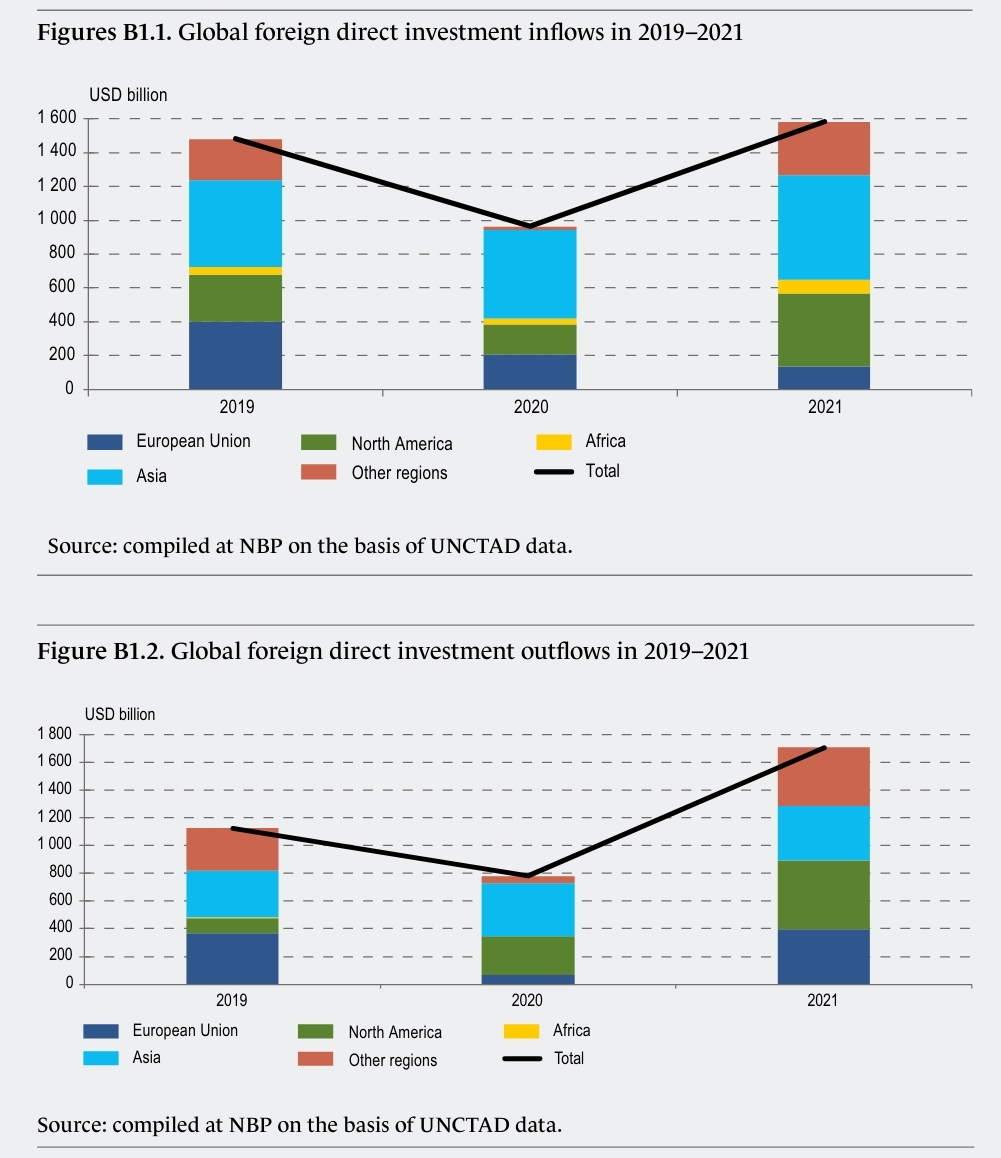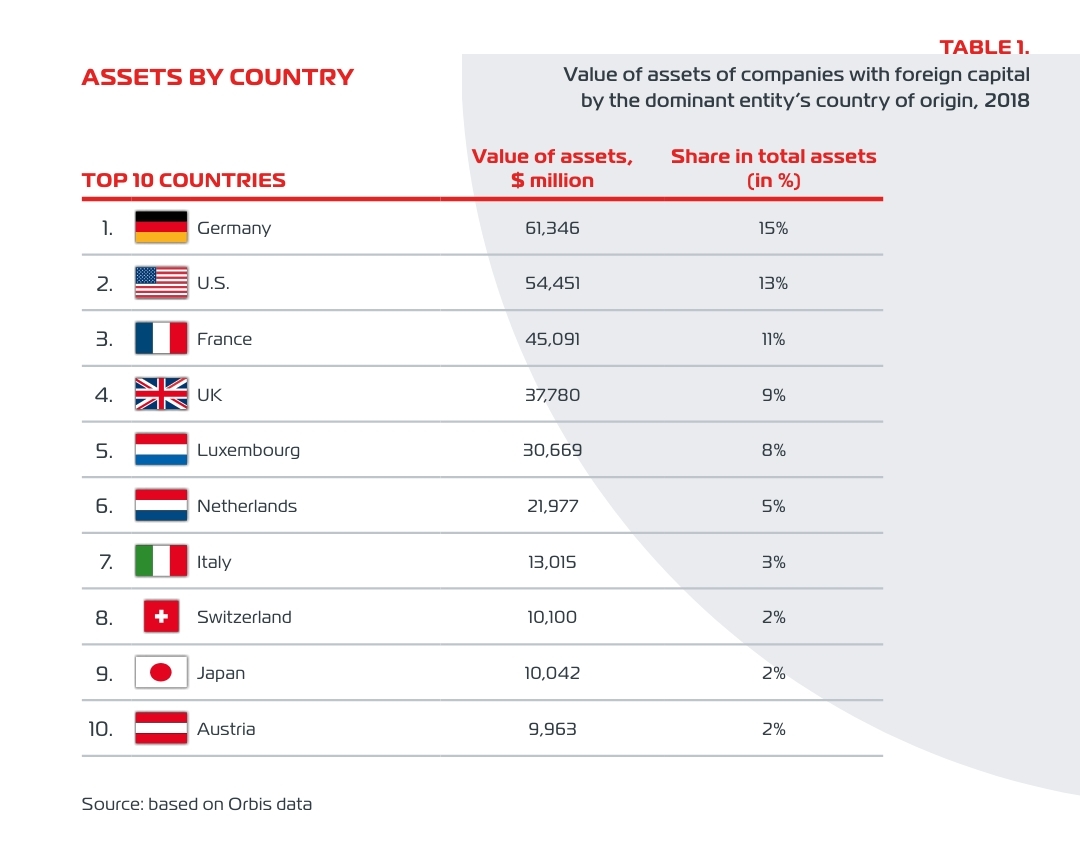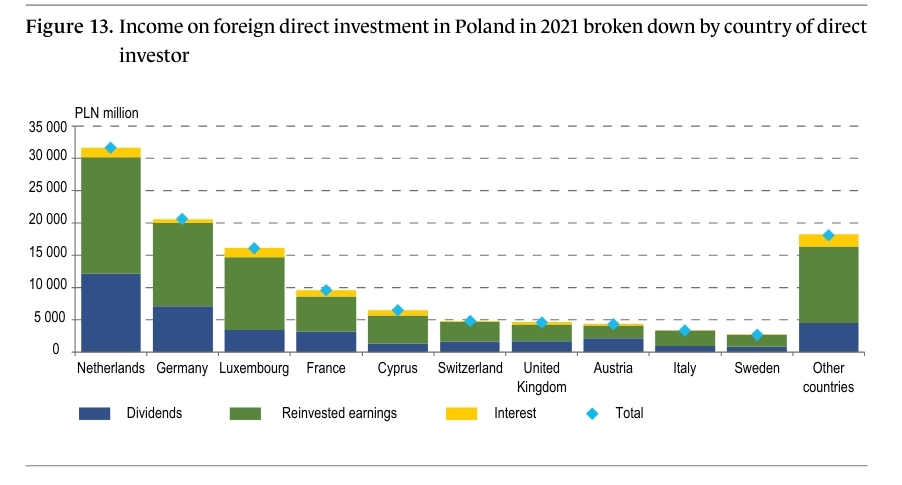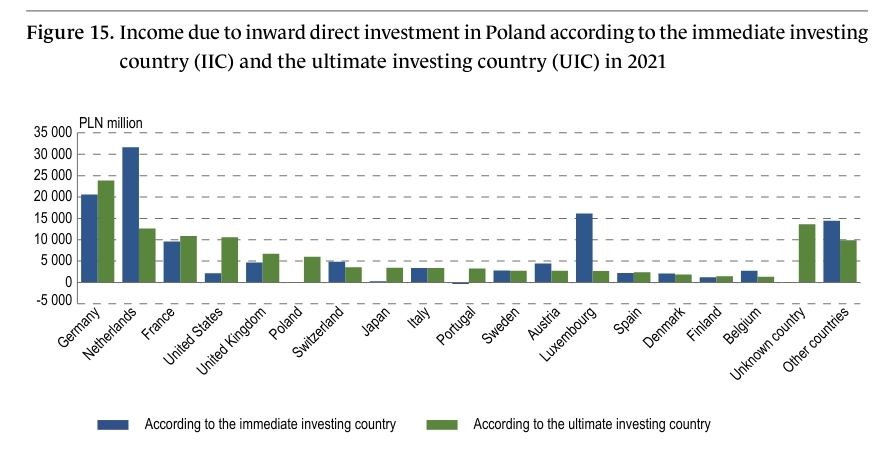Going by what happening with Intel right now, i stronly suspect it’s only empty talk. Though knowing Polish government and its servilism towards America, i wouldn’t be even very surprised if Poland funded 100% of that factory, after all it’s exactly what they were doing in 90’s
I’ve quickly documented myself on the “polish economic miracle” a few years ago, but only remember that it was linked with millions of polish working in other european countries, as well as important foreign direct investments, you seem knowledgeable so perhaps could you redirect me towards some explanations for this, or take a bit of your time to explain it to me yourself ? I’ve also postponed the understanding for China’s success, this topic of “Why do some countries become wealthy and not others” is among the most interesting possible.
Also, having never heard of Poland(, or any country for that matter,) funding 100% of a company while leaving the dividends to foreign hands, i’d like to know more about that as well if you have the time and/or a link.
Polish “economic miracle” could means several things, we have one constantly reinvented by state propaganda to shut our faces and i lost count long ago what they mean currently. Generally over the last two decades i would say it’s blanket term for sucking up the cash from EU (Poland was and still is all the time most subsidized country) while not entirely integrating into EU financial structures to not be hit as hard by the crisises like in 2008 (fun fact: even the fucker balcerowicz knows euro is not good and lobbying hard for keeping currency was probably the only good thing he ever did) and actually quite skillful engineereing of social dumping both from and to Poland.
Before that it was standard for postsocialist country “let’s lose 30 years of development, become colonised, and call that economical miracle”
never heard of Poland(, or any country for that matter,) funding 100% of a company while leaving the dividends to foreign hands
Huh? That’s happening all the time, it’s called “privatisation”. In Poland (and i suspect in every postsocialist country) there was especially scummy way to do it in first 3 years of transformation: industry was bought by random people substituted by foreign business, for peanuts, and those peanuts were provided by the company being bought as lease, so effectively it was state just giving up the industry for free, nearly always into foreign hands.
It also did happened later like the case of modern steel mill being build, immediately sold for nearly nothing and of course liquidated as competition (in Silesia around 2005 iirc).
There was also even more blatant case i do known, though it probably also happened way more elswhere and wasn’t into foreign hands specifically: Meiji Japan build state industry and then to purposefully kickstart not even capitalism but immediately imperialism, they just given it up to zaibatsus, creating the industrial molochs that would lead Japan straight into fascism. And considering the still-mostly medieval development level of most of coutry it could be said that they literally pushed the imperialism button.
Thank you very much, i forgot about privatizations, and initially thought you were talking about brand new industries 100% paid by the state immediately given to foreign hands(, the steel mill factory in Silesia being built in the 70s).
But yeah, it could have brought a lot of money to the state coffers instead of the same foreign capitalist hands. Our public workers have(had) better salaries and working conditions than private ones in France, and it’s strangely used as an argument against public enterprises rather than against private enterprises. We’re quick to say that these better conditions means higher prices(, but higher salaries means being able to buy at higher prices anyway), yet we’ll ignore that higher dividends also mean higher prices, and public enterprises usually have zero dividends as well as fewer salary gaps.
Well, in any case, that was informative, and i didn’t know about the gift of japanese state-owned enterprises to the zaibatsus, thanks !
This graph is not related at all, it’s from 2021 and it’s global investments, look at the y axis. Poland would barely be shown there as pixel. And in the other graphs in your link you can see that US investments in Poland were less than Belgian or Swiss or Swedish, and even by the ultimate flow of capital still half of German ones and less than Netherlands.
This graph is not related at all, it’s from 2021 and it’s global investments, look at the y axis. Poland would barely be shown there as pixel.
And in the other graphs in your link you can see that US investments in Poland were less than Belgian or Swiss or Swedish
Yep, you’re right about the y-axis, i’ve read that too quickly.
And the other graphs in the pdf seem indeed to confirm that 2023 was an exception :
I should probably research it a bit more to have a more precise point of view.
No way US pumps more money in Poland than Germany, unless this is counting all the expenses on their base in Poland as “direct investment”
I don’t know for the other years, and couldn’t easily find data to conclude, but the article writes that :
That’d be 4.6bn out of the ~$7bn on the graph
Over 1/3rd of it was to be financed by Polish tax money and it was scrapped anyway.
105 kurwa sasinów poszło się jebać XDDDDDDDDDDDDDD
Well, not necessarily, it’s only suspended not canceled :)
Going by what happening with Intel right now, i stronly suspect it’s only empty talk. Though knowing Polish government and its servilism towards America, i wouldn’t be even very surprised if Poland funded 100% of that factory, after all it’s exactly what they were doing in 90’s
I’ve quickly documented myself on the “polish economic miracle” a few years ago, but only remember that it was linked with millions of polish working in other european countries, as well as important foreign direct investments, you seem knowledgeable so perhaps could you redirect me towards some explanations for this, or take a bit of your time to explain it to me yourself ? I’ve also postponed the understanding for China’s success, this topic of “Why do some countries become wealthy and not others” is among the most interesting possible.
Also, having never heard of Poland(, or any country for that matter,) funding 100% of a company while leaving the dividends to foreign hands, i’d like to know more about that as well if you have the time and/or a link.
Polish “economic miracle” could means several things, we have one constantly reinvented by state propaganda to shut our faces and i lost count long ago what they mean currently. Generally over the last two decades i would say it’s blanket term for sucking up the cash from EU (Poland was and still is all the time most subsidized country) while not entirely integrating into EU financial structures to not be hit as hard by the crisises like in 2008 (fun fact: even the fucker balcerowicz knows euro is not good and lobbying hard for keeping currency was probably the only good thing he ever did) and actually quite skillful engineereing of social dumping both from and to Poland.
Before that it was standard for postsocialist country “let’s lose 30 years of development, become colonised, and call that economical miracle”
Huh? That’s happening all the time, it’s called “privatisation”. In Poland (and i suspect in every postsocialist country) there was especially scummy way to do it in first 3 years of transformation: industry was bought by random people substituted by foreign business, for peanuts, and those peanuts were provided by the company being bought as lease, so effectively it was state just giving up the industry for free, nearly always into foreign hands.
It also did happened later like the case of modern steel mill being build, immediately sold for nearly nothing and of course liquidated as competition (in Silesia around 2005 iirc).
There was also even more blatant case i do known, though it probably also happened way more elswhere and wasn’t into foreign hands specifically: Meiji Japan build state industry and then to purposefully kickstart not even capitalism but immediately imperialism, they just given it up to zaibatsus, creating the industrial molochs that would lead Japan straight into fascism. And considering the still-mostly medieval development level of most of coutry it could be said that they literally pushed the imperialism button.
Thank you very much, i forgot about privatizations, and initially thought you were talking about brand new industries 100% paid by the state immediately given to foreign hands(, the steel mill factory in Silesia being built in the 70s).
But yeah, it could have brought a lot of money to the state coffers instead of the same foreign capitalist hands. Our public workers have(had) better salaries and working conditions than private ones in France, and it’s strangely used as an argument against public enterprises rather than against private enterprises. We’re quick to say that these better conditions means higher prices(, but higher salaries means being able to buy at higher prices anyway), yet we’ll ignore that higher dividends also mean higher prices, and public enterprises usually have zero dividends as well as fewer salary gaps.
Well, in any case, that was informative, and i didn’t know about the gift of japanese state-owned enterprises to the zaibatsus, thanks !
I.d.k., but even if it was scrapped it’s probably counted in.
I’ve found this graph here :
This table here may be a good enough answer ?

This graph is not related at all, it’s from 2021 and it’s global investments, look at the y axis. Poland would barely be shown there as pixel. And in the other graphs in your link you can see that US investments in Poland were less than Belgian or Swiss or Swedish, and even by the ultimate flow of capital still half of German ones and less than Netherlands.
Yep, you’re right about the y-axis, i’ve read that too quickly.


And the other graphs in the pdf seem indeed to confirm that 2023 was an exception :
I should probably research it a bit more to have a more precise point of view.
I wonder if this really were all military expenses.